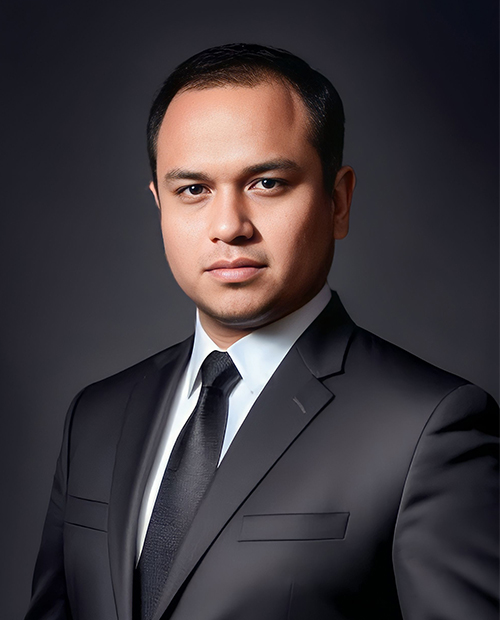Implementation of Problem Based Learning Model to Improve Student Learning Outcomes in Islamic Education Learning at MTS Manbaul Ulum
DOI:
https://doi.org/10.62945/ajet.v1i1.129Keywords:
Problem Based Learning Model, Improving Learning StudentAbstract
This study aimed to explore the effectiveness of the Problem-Based Learning (PBL) model in improving students' learning outcomes in Islamic Education at MTS Manbaul Ulum. The research utilized a Classroom Action Research (CAR) approach, conducted over two cycles, with 30 students from the 7th grade. The primary objective was to enhance students' ability to apply Islamic principles, such as honesty and integrity, in real-world situations through active learning strategies. Data were collected using pre- and post-assessments, classroom observations, teacher reflections, and student surveys. The results showed significant improvements in students' engagement, critical thinking, and application of Islamic teachings. Students demonstrated greater involvement in group discussions, better critical thinking skills, and an increased ability to connect Islamic values to everyday situations. The study also found that students' attitudes toward Islamic Education improved, with many expressing greater interest and relevance in the subject matter. Despite challenges such as time management and initial reluctance from some students, the overall effectiveness of PBL in enhancing students' learning outcomes was evident. In conclusion, the Problem-Based Learning model proved to be an effective teaching strategy in Islamic Education, fostering deeper understanding, active participation, and critical thinking among students. The study recommends the integration of PBL in other educational contexts to improve both academic and moral development in students.
Downloads
References
Arikunto, S. (2002). Prosedur Penelitian. Bandung: Rineka Cipta.
Dasopang, M. D., Lubis, A. H., & Dasopang, H. R. (2022). How do Millennial Parents Internalize Islamic Values in Their Early Childhood in the Digital Era? AL-ISHLAH: Jurnal Pendidikan, 14(1), 697–708.
Dasopang, M. D., Nasution, I. F. A., & Lubis, A. H. (2023). The Role of Religious and Cultural Education as A Resolution of Radicalism Conflict in Sibolga Community. HTS Theological Studies, 79(1), 1–7.
Erawadi, E., Hamka, H., & Juliana, F. (2017). The Analysis of Student’s Stressed Syllables Mastery at Sixth Semester of TBI in IAIN Padangsidimpuan. English Education: English Journal for Teaching and Learning, 5(1), 44–57.
Fatimah, A., & Maryani, K. (2018). Visual Literasi Media Pembelajaran Buku Cerita Anak. Jurnal Inovasi Teknologi Pendidikan, 5(1), 61–69. https://doi.org/10.21831/jitp.v5i1.16212
Gogahu, D. G. S., & Prasetyo, T. (2020). Pengembangan Media Pembelajaran Berbasis E-Bookstory untuk Meningkatkan Literasi Membaca Siswa Sekolah Dasar. Jurnal Basicedu, 4(4), 1004–1015.
Hamka, H. (2023). The Role of Principals on Teacher Performance Improvement in a Suburban School. QALAMUNA: Jurnal Pendidikan, Sosial, Dan Agama, 15(1), 371–380.
Hamka, H., Suen, M.-W., Anganthi, N. R. N., Haq, A. H. B., & Prasetyo, B. (2023). The Effectiveness of Gratitude Intervention in Reducing Negative Emotions in Sexual Abuse Victims. Psikohumaniora: Jurnal Penelitian Psikologi, 8(2), 227–240.
Harahap, S. M., & Hamka, H. (2023). Investigating the Roles of Philosophy, Culture, Language and Islam in Angkola’s Local Wisdom of ‘Dalihan Na Tolu.’ HTS Teologiese Studies/Theological Studies, 79(1), 8164.
Hendrawati, S., Rosidin, U., & Astiani, S. (2020). Perilaku hidup bersih dan sehat (PHBS) siswa/siswi di sekolah menengah pertama negeri (SMPN). Jurnal Perawat Indonesia, 4(1), 295–307. https://doi.org/https://doi.org/10.32584/jpi.v4i1.454
Lubis, A. H. (2019). Upaya Peningkatan Hasil Belajar Siswa Sekolah Dasar melalui Model Cooperative Learning Tipe Numered Heads Together. FORUM PAEDAGOGIK, 11(2), 127–143.
Lubis, A. H. (2023). The Interactive Multimedia Based on Theo-Centric Approach as Learning Media during the Covid-19 Pandemic. JPI (Jurnal Pendidikan Indonesia), 12(2), 210–222.
Lubis, A. H., & Dasopang, M. D. (2020). Pengembangan Buku Cerita Bergambar Berbasis Augmented Reality untuk Mengakomodasi Generasi Z. Jurnal Pendidikan: Teori, Penelitian, Dan Pengembangan, 5(6), 780–791.
Lubis, A. H., Dasopang, M. D., Ramadhini, F., & Dalimunthe, E. M. (2022). Augmented Reality Pictorial Storybook: How does It Influence on Elementary School Mathematics Anxiety? Premiere Educandum: Jurnal Pendidikan Dasar Dan Pembelajaran, 12(1), 41–53.
Lubis, A. H., & Wangid, M. N. (2019). Augmented Reality-assisted Pictorial Storybook: Media to Enhance Discipline Character of Primary School Students. Mimbar Sekolah Dasar, 6(1), 11–20. https://doi.org/10.17509/mimbar-sd.v6i1.16415
Lubis, A. H., Yusup, F., Dasopang, M. D., & Januariyansah, S. (2021). Effectivity of Interactive Multimedia with Theocentric Approach to the Analytical Thinking Skills of Elementary School Students in Science Learning. Premiere Educandum: Jurnal Pendidikan Dasar Dan Pembelajaran, 11(2), 215–226.
Manshur, U., & Ramdlani, M. (2019). Media audio visual dalam pembelajaran PAI. Al-Murabbi:Jurnal Pendidikan Agama Islam, 5(1), 1–8.
Mardhiyah, R. H., Aldriani, S. N. F., Chitta, F., & Zulfikar, M. R. (2021). Pentingnya Keterampilan Belajar di Abad 21 sebagai Tuntutan dalam Pengembangan Sumber Daya Manusia. Lectura: Jurnal Pendidikan, 12(1), 29–40.
Ningsih, Y. S., Mulia, M., & Lubis, A. H. (2023). Development of Picture Storybooks with TheoAnthropoEco Centric Approach for Elementary School Students. AL-ISHLAH: Jurnal Pendidikan, 15(2), 1888–1903.
Nurhidayah, I., Asifah, L., & Rosidin, U. (2021). Pengetahuan , Sikap dan Perilaku Hidup Bersih dan Sehat pada Siswa Sekolah Dasar. 13(1), 61–71. https://doi.org/10.32528/ijhs.v13i1.4864
Pebtiyanti, I., Ahmad, A., Dzaky, M., Fauziah, S. N., Rendi, & Puspitasari, P. (2023). Peran kurikulum merdeka dalam meningkatkan harmonisasi antara masyarakat dan sekolah. Jurnal Pacu Pendidikan Dasar, 3(1), 269–277. https://doi.org/https://doi.org/10.22021/pacu.v3i1.411
Rahmah, S., & Lubis, A. H. (2024). Problem Posing as a Learning Model to Improve Primary School Students’ Mathematics Learning Outcomes in Gayo Lues. Journal of Indonesian Primary School, 1(4), 93–104.
Rahman, A., Munandar, S. A., Fitriani, A., Karlina, Y., & Yumriani. (2022). Pengertian Pendidikan, Ilmu Pendidikan dan Unsur-Unsur Pendidikan. Al Urwatul Wutsqa: Kajian Pendidikan Islam, 2(1), 1–8.
Ranisa, R., Erawadi, E., & Hamka, H. (2018). Students’ Mastery in Identifying Adverbs at Grade VIII SMPN 2 Batang Toru Tapanuli Selatan. ENGLISH EDUCATION JOURNAL: English Journal for Teaching and Learning, 6(2), 241–252.
Ricardo, R., & Meilani, R. I. (2017). Impak Minat dan Motivasi Belajar terhadap Hasil Belajar Siswa. Jurnal Pendidikan Manajemen Perkantoran (JPManper), 2(2), 188–201.
Santi, Undang, & Kasja. (2023). Peran Guru PAI dalam Membentuk Karakter Peserta Didik di Sekolah. Jurnal Pendidikan Tambusai, 7(2), 16078–16084. https://doi.org/https://doi.org/10.31004/jptam.v7i2.8918
Sugiyono. (2018). Metode Penelitian Kuantitatif Kualitatif dan R&D. Bandung: Alfabeta.










